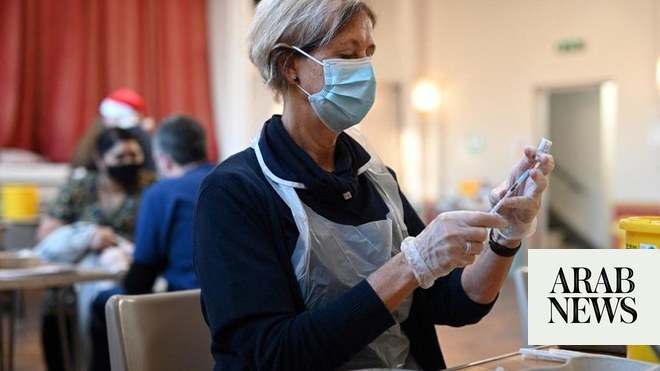
Early in the pandemic, deaths involving coronavirus were the highest among Bangladeshis, Black Caribbeans, and Pakistanis
Virus had its greatest impact on frontline workers, who are disproportionately ethnic minorities, expert says
LONDON: Ethnic minorities in the UK are no longer significantly more likely to die of COVID-19, the BBC reported on Wednesday.
Early in the pandemic, deaths involving coronavirus were the highest among Bangladeshis, Black Caribbeans, and Pakistanis than among white people.
Last year, all ethnic minority mortality rates decreased.
Recent data from the Office for National Statistics has revealed that there is now no statistically significant difference in the number of COVID-19-related deaths among ethnic minorities and the white population.
The reasons for this shift are complex, with experts citing “various factors” to consider.
Dr. Veena Raleigh, an epidemiologist and senior fellow at The King’s Fund, told the BBC that at the start of the pandemic, there was little understanding of the transmission and impact of COVID-19.
“The virus had its greatest impact on people who were most vulnerable or exposed to the infection — that was older people and people working in frontline jobs, key workers in the NHS, public transport, etc.,” Raleigh said.
“And of course, ethnic minorities are disproportionately working in those roles,” the epidemiologist added.
Raleigh continued: “Initially the virus had a terrible impact in terms of mortality. But over time, we learned more about how this virus transmits. For example, various social measures to control the spread of infection were introduced, like mask-wearing and social distancing. So that helped to moderate ethnic differences.
“And then, of course, the vaccination program came in. And although vaccination rates are lower in some ethnic minority groups, nonetheless, a significant proportion of the population is vaccinated — or has some immunity because they’ve been exposed to the virus.
“All of these factors have contributed to reducing ethnic differences in COVID-19 mortality over time.”
A spokesperson for the think tank Runnymede told the BBC: “COVID-19 was not just a health crisis; it was also a social and economic crisis.
“Unequal health outcomes are not confined to COVID-19, and longstanding racial and economic inequality is at the heart of understanding the pandemic.
“It is precisely because these inequalities are so systemic and interlinked that, when crisis hit, certain communities were impacted first, the hardest and in multiple ways.”












